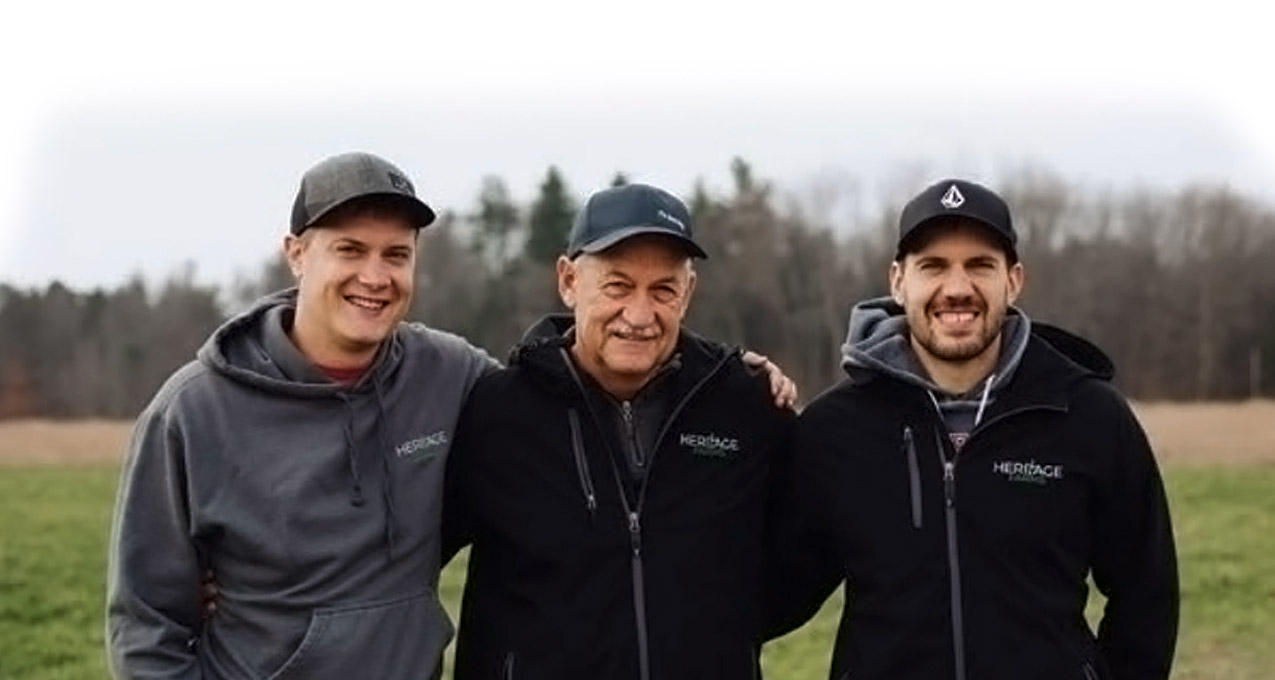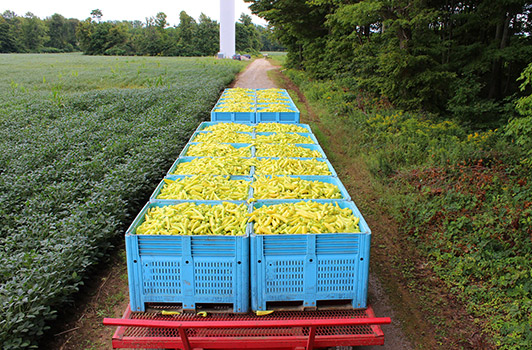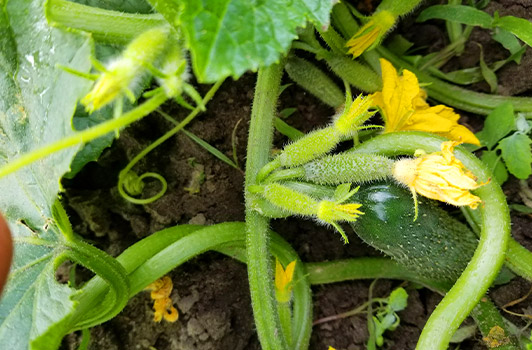OUR STORY
Located just south of Tillsonburg, Ont., our family-run operation spans 2,000 acres of diverse crops including corn, soybeans, seed corn, and an assortment of vegetables—ranging from crisp cucumbers to juicy grape tomatoes. Founded by John Dyck and nurtured by the collective wisdom of three generations, Heritage Grown Farms thrives on the principles of diligence, adaptability, and a steadfast commitment to agricultural excellence.
INNOVATION IN ACTION
Innovation is at the heart of what we do. From the use of mushroom compost to enhance our yields to embracing advanced irrigation techniques, we continuously strive to optimize our practices while honoring time-tested methods that have proven their worth.
SHARED GOALS, SHARED SUCCESS
From planting season to harvest, our team embodies a spirit of collaboration and mutual support. Each day presents new challenges and opportunities, and it is through teamwork that we navigate these with resilience and determination. Whether it’s in the fields tending to our diverse crops or in the office strategizing for the future, our commitment to working together strengthens our ability to innovate and excel.






